Human Rights Violations - Complaint Mechanism (Quasi-Judicial Bodies) Chapter Notes | Legal Studies for Class 12 - Humanities/Arts PDF Download
Quasi-Judicial Bodies: An Overview
Quasi-judicial bodies are public administrative agencies within the executive branch that possess authority similar to that of courts. These bodies have the power to resolve disputes and impose penalties. Examples of quasi-judicial institutions include:
- National and State Human Rights Commissions
- Central and State Information Commissions
- Consumer Redressal Forums and Commissions
- Income Tax Tribunals
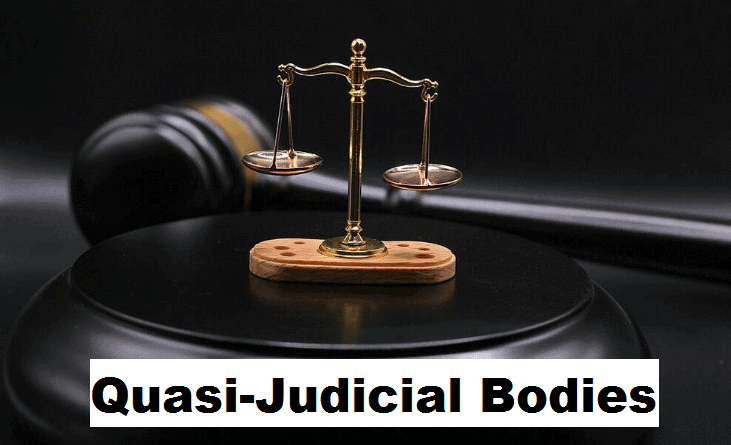
National Human Rights Institutions
The most fundamental human rights bodies are the national human rights institutions, which include the following:
- National Human Rights Commission (NHRC)
- National Commission for Minorities
- National Commission for Women (NCW)
- National Commission for Scheduled Castes
- National Commission for Scheduled Tribes
- National Commission for Protection of Child Rights (NCPCR)
These commissions are independent, autonomous, and transparent bodies established under specific legislation to promote and protect human rights. For instance, the National and State Human Rights Commissions operate under the Protection of Human Rights Act, 1993. National commissions have jurisdiction over the entire country, while state commissions address human rights violations within their respective states.
National Human Rights Commission (NHRC)
The National Human Rights Commission (NHRC) in India was established in 1993 under the Protection of Human Rights Act, enacted by the Parliament. The NHRC is an independent body with the mandate to promote and protect human rights in the country. The Act also provides for the setting up of State Human Rights Commissions to address complaints at the state level.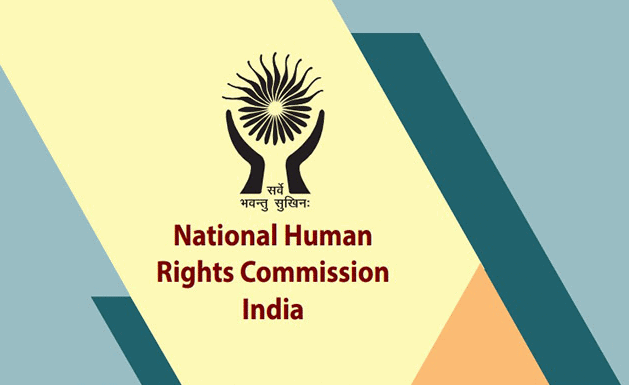
Constitution of the NHRC
The NHRC is headed by a Chairperson, who is a former Chief Justice of the Supreme Court. The Commission includes:
- One member who is a former judge of the Supreme Court
- One member who is a former Chief Justice of a High Court
- Two members with expertise in human rights issues
The President of India appoints the Chairperson and members based on the recommendation of a committee that includes the Prime Minister, the Speaker of the Lok Sabha, the Minister of Home Affairs, the Leaders of the Opposition in the Lok Sabha and the Rajya Sabha, and the Deputy Chairman of the Rajya Sabha. The committee consults the Chief Justice of India when appointing a sitting judge to the Commission.
The NHRC is based in New Delhi, and State Human Rights Commissions operate at the state level to support its work.
Functions of the NHRC
- Inquiry and Investigation: The NHRC is responsible for conducting inquiries and investigations into alleged human rights violations by public servants. Complaints can be filed by victims, their representatives, or the court, and the NHRC can also initiate inquiries on its own (Suo Motu).
- Powers: The NHRC has the powers of a civil court, including the authority to summon witnesses, request documents, and receive evidence on affidavits. It can also examine witnesses and documents during inquiries.
- Recommendations: Upon completing an inquiry, the NHRC can make recommendations to government authorities, such as suggesting compensation for victims or initiating legal proceedings against public servants. The NHRC can also approach the Supreme Court or High Courts for directions and orders.
- Intervention in Court Proceedings: With court permission, the NHRC can intervene in legal cases related to human rights violations, such as requesting the transfer of riot cases to ensure witness protection and evidence integrity.
- Inspection of Jails and Institutions: The NHRC has the authority to visit jails and other government institutions where individuals are detained to assess living conditions and make recommendations for improvements.
- Awareness and Sensitization: The NHRC can review human rights laws and recommend measures for their effective implementation. It can also evaluate factors hindering the enjoyment of human rights, such as terrorism, and suggest remedial actions to the government.
Role of the Commission
- Study international human rights laws and recommend their implementation in the State.
- Promote research in human rights and spread awareness among different sections of society.
- Raise awareness about human rights safeguards through publications, media, and seminars.
- Support and encourage the efforts of non-governmental organizations working in the field of human rights.
In-Class Exercise
- The National Human Rights Commission of India has provided a specific format for filing complaints. Students are encouraged to use this format to draft a complaint regarding any human rights violation they are aware of, whether real or hypothetical.
- This exercise aims to familiarize students with the complaint mechanism of the NHRC and raise awareness about human rights issues.
Format for Filing a Complaint with the NHRC
A. Complainant's Details
- Name:
- Sex: Male / Female
- State:
- Full Address:
- District:
- Pin Code:
- Caste (SC/ST/OBC/General):
- Age:
- Whether Disabled person:
B. Incident Details
- Incident Place (Village/Town/City):
- Date of Incident:
C. Victim's Details
- Name of the victim:
- No. of victims:
- Religion:
- Caste (SC/ST/OBC/General):
- Age:
- Whether Disabled person:
D. Brief Summary of Facts/Allegations of Human Rights Involved
E. Whether Complaint is Against Members of Armed Forces/Para-Military
F. Whether Similar Complaint has been Filed Before Any Court/State Human Rights Commission
G. Name, Designation & Address of the Public Servant Against Whom Complaint is Being Made
H. Name, Designation & Address of the Authority/Officials to Whom the Public Servant is Answerable
I. Prayer/Relief Sought
Guidelines on How to File Complaint with the NHRC
- Complaints can be made by the victim or any other person on their behalf.
- Complaints should be in writing, either in English, Hindi, or any other language included in the eighth schedule of the Constitution.
- Complaints can be sent by Post, Fax, or Email.
- No fee is chargeable for such complaints.
- The complaint should disclose a violation of human rights or negligence in preventing such violations by a public servant.
- Complaints are restricted to violations alleged to have occurred within one year of receipt by the Commission.
- Documents in support of the allegations should be legible.
- Essential details such as the victim's name, age, sex, religion/caste, State, District, and incident date should be mentioned.
- Complaints should preferably be submitted in the enclosed format.
Types of Complaints Not Ordinarily Entertained
- Illegible complaints
- Vague, anonymous, or pseudonymous complaints
- Trivial or frivolous complaints
- Matters pending before a State Human Rights Commission or any other Commission
- Complaints filed after one year from the date of the alleged violation
- Allegations not against a public servant
- Civil disputes, service matters, industrial disputes, or allegations not constituting a specific violation of human rights
- Matters sub-judice before a Court/ Tribunal
National Commission for Minorities
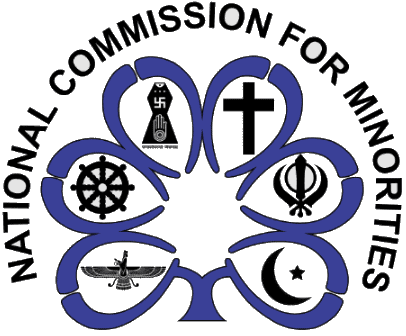
- The National Commission for Minorities was established under the National Commission for Minorities Act, 1992, enacted by the Parliament. The Commission is responsible for safeguarding the human rights of religious minorities, including protection against inequality and discrimination.
- The religious minorities recognized by the Commission include Muslims, Christians, Sikhs, Buddhists, Jains, and Zoroastrians (Parsis).
- The Commission consists of a Chairperson, a Vice-Chairperson, and five other members, all of whom are nominated by the Central Government from among the minority communities. These members are expected to be persons of eminence, ability, and integrity.
- Many states in India have also established State Minorities Commissions to address similar issues at the state level. Individuals belonging to minority communities can approach both the State and National Minorities Commissions for redressal of human rights violations.
Constitution
- The National Minorities Commission is constituted by a Chairperson, a Vice-Chairperson, and five other members. These members are nominated by the Central Government from among the minority communities and must possess qualities of eminence, ability, and integrity.
Functions of the Commission
- Evaluating the progress of development for minorities.
- Monitoring the implementation of safeguards provided in the Constitution and other laws for minorities.
- Making recommendations for better implementation of these safeguards by the Central and State Governments.
- Addressing specific complaints regarding deprivation of rights and safeguards for minorities.
- Initiating studies on issues of discrimination against minorities and suggesting measures for their resolution.
- Conducting research on socio-economic and educational development issues concerning minorities.
- Suggesting measures for the welfare of specific minority groups.
- Preparing reports for the Central Government on matters related to minorities and the challenges they face.
Powers
- The National Commission for Minorities holds powers similar to those of a civil court.
- These powers include summoning individuals, requiring document production, receiving evidence through affidavits, requesting public records, and issuing commissions for witness examination.
Complaint Mechanism
- The Commission typically declines to admit complaints based on several grounds:
- Complaints must relate specifically to minority status or rights.
- Complaints should not be pending before another court or commission (sub judice).
- Complainants should have exhausted other available judicial or administrative remedies unless justified otherwise.
- Complaints should pertain to events that occurred within the last year.
- Complaints should not be vague, anonymous, pseudonymous, or frivolous.
- Complaints must be addressed directly to the Commission.
- Similar to the National Human Rights Commission (NHRC), the National Commission for Minorities can take suo motu action based on findings from newspaper reports or other sources.
- Applications and complaints should be sent directly to the Secretary of the National Commission for Minorities in New Delhi.
- There is no fee charged for lodging a complaint with the Commission.
- Updated contact information for the Commission can be found on its official website.
National Commission for Women
- The National Commission for Women (NCW) was established by the Government of India in January 1992.
- It operates as a statutory body, functioning under the National Commission for Women Act of 1990.
- The primary objective of the NCW is to review and recommend measures for the effective implementation of legal safeguards for women.
- It also aims to assess the constitutional and legal protection granted to women and propose necessary remedial legislative measures to address any inadequacies.
Composition
- Chairperson:. person with expertise in issues related to women, such as law, legislation, trade unionism, management, women’s potential, voluntary organizations, administration, economic development, health, education, or social welfare, is appointed as the chairperson.
- Members: The commission includes five other members, each with knowledge and experience in areas relevant to women’s issues.
- Scheduled Castes and Scheduled Tribes Representation: At least one member from the Scheduled Castes and one from the Scheduled Tribes communities must be included in the commission to ensure representation.
- Member-Secretary: The administrative responsibilities of the commission are handled by the member-secretary, who oversees its day-to-day functioning.
Functions
- Investigate Safeguards: The commission investigates and examines matters related to the safeguards provided for women under the Constitution and other laws.
- Annual Reports: It presents annual and other reports to the Central Government regarding the working of these safeguards.
- Recommendations: The commission makes recommendations to the Central and state governments for the effective implementation of safeguards to improve the conditions of women.
- Review Provisions: It reviews the provisions of the Constitution and other laws affecting women and suggests remedial legislative measures to address inadequacies.
- Human Rights Violations: The commission takes up cases with appropriate authorities regarding violations of women’s human rights as per the Constitution and laws.
- Complaints and Suo Moto Notices: It looks into complaints and can take suo moto notice of matters related to deprivation of women’s rights, non-implementation of laws, and non-compliance with policy decisions regarding women’s welfare.
- Special Studies: The commission initiates special studies or investigations into specific problems or situations arising from discrimination and atrocities against women, recommending strategies to address these issues.
- Promotional and Educational Research: It undertakes research to promote and ensure due representation of women in various spheres, identifying factors hindering their advancement, such as lack of access to housing, basic services, and support technologies.
- Planning Process Participation: The commission participates in and advises on the planning process for the socio-economic development of women.
- Progress Evaluation: It evaluates the progress of women’s development under the Union and State governments.
- Inspections: The commission has the authority to inspect jails, remand homes, women’s institutions, and other places where women are kept as prisoners or otherwise, taking up issues with concerned authorities for remedial action if necessary.
- Litigation Funding: It can fund litigation involving issues affecting a large number of women.
- Periodic Reports: The commission makes periodic reports to the government on various matters pertaining to women, highlighting the difficulties they face.
Powers
- The Commission holds investigative powers akin to those of a civil court.
- It can summon and enforce the attendance of individuals, examine them under oath, require the discovery and production of documents, and request public records or copies from courts or offices.
National Commission for Scheduled Castes and Scheduled Tribes
Article 338 of the Indian Constitution provides for the appointment of a Special Officer to oversee matters related to the safeguards for Scheduled Castes (SCs) and Scheduled Tribes (STs) as outlined in the Constitution. This officer reports directly to the President of India.
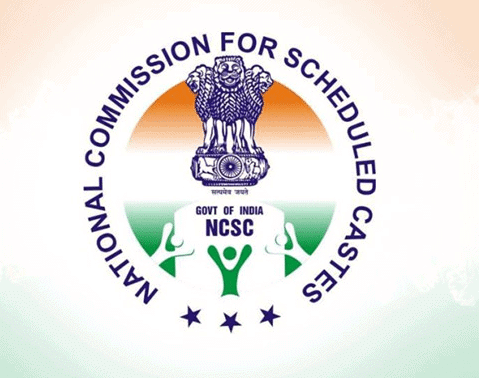
To fulfill this constitutional mandate, two separate commissions have been established:
- National Commission for Scheduled Castes (NCSC)
- National Commission for Scheduled Tribes (NCST)
These commissions aim to protect the human rights of SCs and STs, prevent their exploitation, and promote their social, educational, economic, and cultural well-being through constitutional and legal measures. For instance, the state provides reservations in government jobs for SCs and STs, recognizing the historical disadvantages and lack of representation they have faced due to caste-based discrimination.
Key laws protecting these communities include:
- The Protection of Civil Rights Act, 1955
- The Scheduled Castes and Scheduled Tribes (Prevention of Atrocities) Act, 1989
Functions
Both commissions have similar powers and responsibilities as outlined in Article 338, which include:
- Investigating and monitoring the implementation of constitutional and legal safeguards for SCs and STs.
- Evaluating the effectiveness of these safeguards.
- Inquiring into specific complaints regarding the violation of rights and safeguards for SCs and STs.
- Participating in and advising on the socio-economic development plans for SCs and STs, and assessing their progress at the central and state levels.
- Submitting annual and periodic reports to the President on the functioning of these safeguards, along with recommendations for better implementation and overall welfare of SCs and STs.
Powers
Similar to other human rights commissions, the NCSC and NCST possess the powers of a civil court, which include:
- Summoning individuals from any part of the country and examining them under oath.
- Requesting the discovery and production of documents.
- Accepting evidence through affidavits.
- Accessing public records or copies from courts or other offices.
- Issuing commissions for examining witnesses and documents.
Article 338 also mandates that the central and state governments consult these commissions on all significant policy decisions affecting SCs and STs.
Complaint Mechanism
The commissions accept complaints from individuals or groups alleging violations of the constitutional safeguards by any authority or organization. They follow up with the concerned authorities or organizations to address these complaints.
National Commission for Protection of Child Rights (NCPCR)
The National Commission for Protection of Child Rights (NCPCR) is a statutory body established under the Commission for Protection of Child Rights Act, 2005. It upholds the universality and inviolability of child rights, emphasizing urgency in all child-related policies in India.
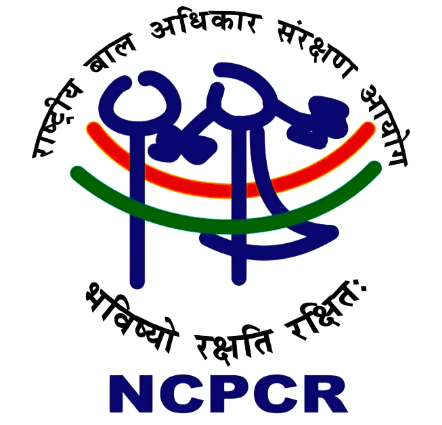
The Commission ensures the protection of all children aged 0 to 18 years, with a focus on the most vulnerable, including those from backward regions, marginalized communities, and those in challenging circumstances. NCPCR acknowledges that limiting interventions to certain groups may exclude many vulnerable children, thus compromising efforts to safeguard child rights. It believes that creating a broad environment supporting children's rights helps all children access their entitlements with confidence.
The Commission views all child rights as interconnected and equally important. It emphasizes that a child’s full enjoyment of rights at 18 depends on access to all entitlements from birth, making policy interventions crucial at every stage of childhood.
Functions
Under the CPCR Act, 2005, the NCPCR performs the following functions:
- Review existing child rights safeguards in laws and recommend measures for effective implementation.
- Submit annual and periodic reports to the central government on the functioning of these safeguards.
- Inquire into violations of child rights and recommend appropriate actions.
- Identify factors that hinder the rights of children affected by terrorism, violence, disasters, domestic abuse, HIV/AIDS, trafficking, exploitation, pornography, and prostitution, and suggest remedial measures.
- Address issues concerning children in need of special care and protection, including those in distress, marginalized groups, juveniles, children without families, and children of prisoners, and recommend corrective actions.
- Study international treaties on child rights, review national policies and programs, and suggest measures for better implementation in children's best interests.
- Promote research on child rights.
- Spread awareness on child rights and available safeguards through publications, media, seminars, and other platforms.
- Inspect juvenile homes or other institutions housing children under government or organizational control and recommend necessary remedial actions.
- Analyze laws and policies for compliance with the Convention on the Rights of the Child, conduct inquiries, and provide reports on policy impacts.
- Present reports to the central government annually and periodically on child rights safeguards.
- Conduct formal investigations based on concerns raised by children or representatives on their behalf.
- Encourage government departments and organizations to consider children's views in their work.
- Produce and distribute information related to child rights.
- Collect and analyze data on children.
- Promote the inclusion of child rights in school curriculums and train teachers and staff working with children.
Powers
The NCPCR has the authority to:
- Inquire into complaints or take suo moto action on cases of child rights violations.
- Address non-implementation of child protection laws and development policies.
- Highlight non-compliance with policies, guidelines, or instructions aimed at ensuring children’s welfare, and take up such matters with appropriate authorities.
The Commission can also perform any additional functions necessary to promote child rights. However, it cannot investigate matters already pending before state commissions or other legally constituted bodies.
Complaint Mechanism
A core function of the NCPCR is to investigate complaints of child rights violations, including taking suo moto cognizance of serious cases and examining factors that inhibit children's rights.
Complaints can be made in any language listed in the 8th Schedule of the Constitution.
- No fee is charged for filing complaints.
- Complaints must provide a clear and complete account of the issue.
- The Commission may request additional information or affidavits if necessary.
Guidelines for Filing Complaints:
- Complaints must be clear, legible, and not anonymous or pseudonymous.
- They should be genuine and not trivial or frivolous.
- Complaints should not involve civil disputes like property or contractual matters.
- Issues related to service matters are not accepted.
- Complaints already pending before other commissions or courts are not considered.
- Matters already decided by the Commission are not entertained.
- Complaints outside the Commission’s jurisdiction are not accepted.
|
98 videos|69 docs|30 tests
|
FAQs on Human Rights Violations - Complaint Mechanism (Quasi-Judicial Bodies) Chapter Notes - Legal Studies for Class 12 - Humanities/Arts
| 1. What are the primary functions of the National Human Rights Commission (NHRC) in India? |  |
| 2. How does the National Commission for Minorities address issues faced by minority communities in India? |  |
| 3. What is the role of the National Commission for Women in combating gender discrimination? |  |
| 4. What are the specific functions of the National Commission for Scheduled Castes and Scheduled Tribes? |  |
| 5. How does the National Commission for Protection of Child Rights (NCPCR) ensure the rights of children in India? |  |
















